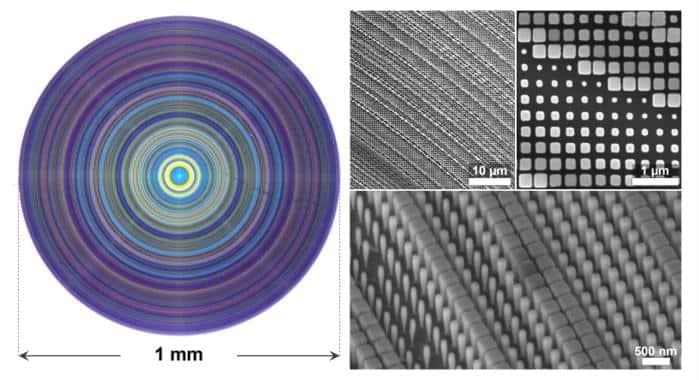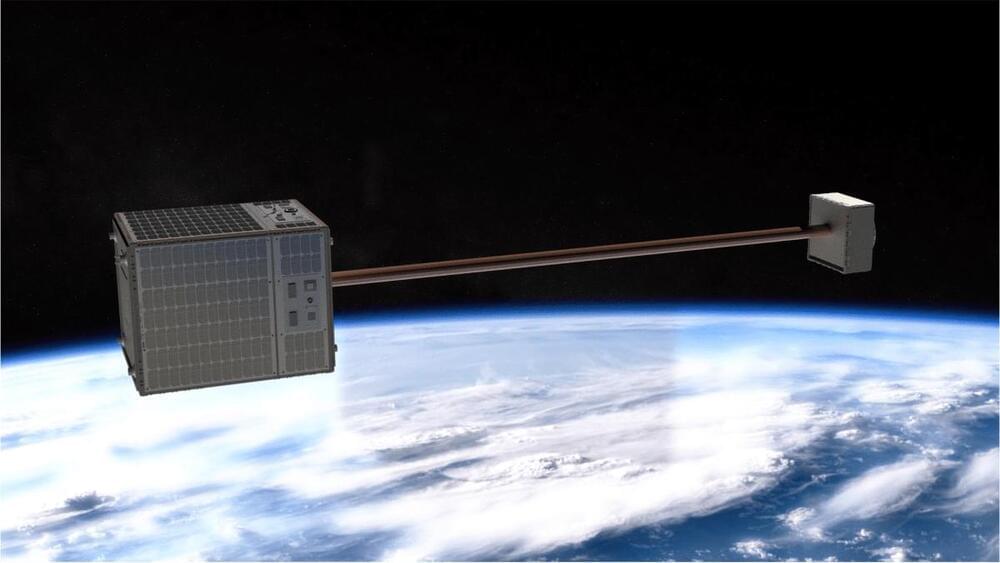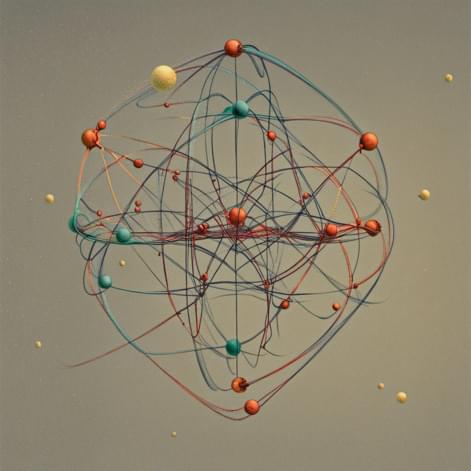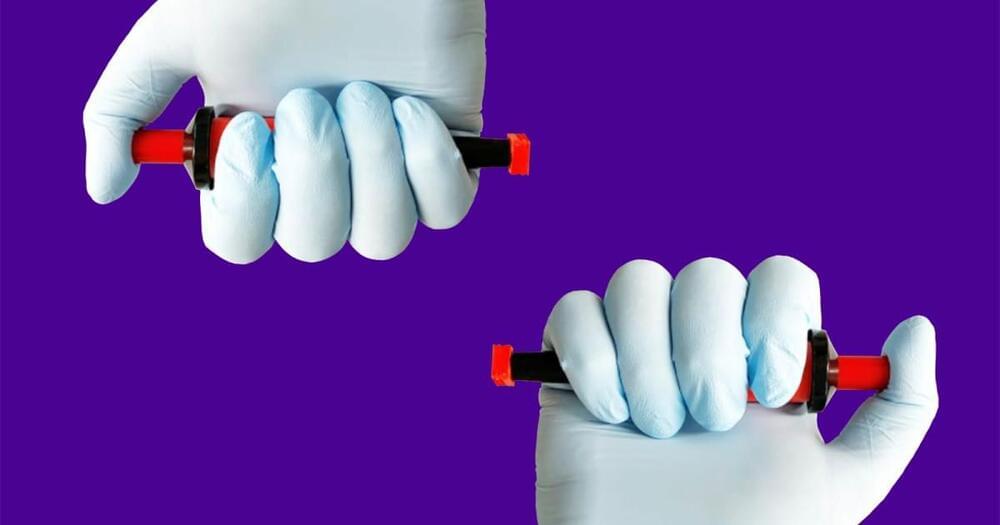
Ultrathin optical elements known as meta-optics can reduce the tip length of endoscopes, which is one of the limiting factors of these medical devices. That’s the latest finding from researchers at the University of Washington, who used an inverse design approach to downsize the tip length by a third. They also demonstrate that the endoscope can capture video in real time over the full visible spectrum, something that has proved difficult with previous approaches.
Endoscopy involves inserting a long, flexible tube (consisting of a camera and a light guide) into the body to obtain images of internal tissues. In existing devices, the tube is tipped with a rigid optical component, the length of which is a fundamental limitation to the device being able to travel through small convoluted ducts such as arteries.
In principle, this problem can be solved by making an endoscope from just a single optical fibre or a bundle of fibres, but the snag here is that some of the light travelling down the fibres is scattered by defects and gets distorted beyond recognition. It cannot therefore be reconstructed to obtain an accurate image. Such devices are also limited to short working distances.









